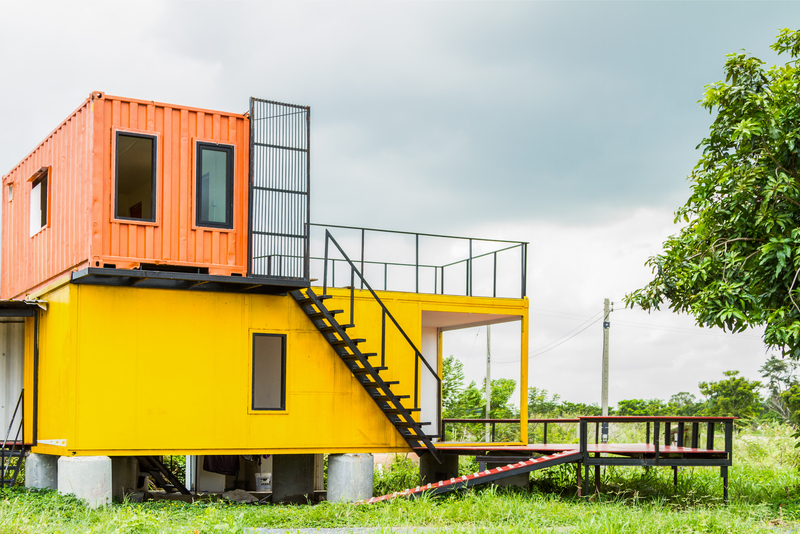Managing Bulky Waste on a Tight Budget: Smart Solutions and Cost-Saving Tips
Bulky waste--also known as large or oversized waste--includes items like furniture, appliances, mattresses, garden debris, and electronics that don't fit in regular trash bins. Disposing of these items can be costly, especially for households, landlords, or businesses operating with limited financial resources. Managing bulky waste on a tight budget is a challenge, but with the right strategies, you can save money while remaining environmentally responsible.
This comprehensive guide will walk you through cost-effective ways to handle large waste items, tips for reducing waste generation, and community resources you can utilize for budget-conscious waste management.
Understanding Bulky Waste and Its Challenges
Bulky waste items are distinct because of their size, weight, or nature; they often come with extra disposal fees and logistical challenges. Common examples include:
- Old sofas and armchairs
- Unused appliances (e.g., refrigerators, microwaves, washing machines)
- Broken beds and mattresses
- Carpet and large rugs
- Garden waste (branches, stumps, large clippings)
- Electronic waste (TVs, computers, printers)
Bulky waste removal typically requires special collection services, transportation, and in some cases, additional recycling or landfill fees. Left unmanaged, excess large waste contributes to landfill overcrowding and environmental pollution. So, what low-cost solutions are there?

Budget-Friendly Bulky Waste Management Solutions
1. Reuse and Repurpose First
Before considering disposal, reuse and repurposing are not only sustainable but can also be your most economical options for managing bulky waste. Some ideas include:
- Furniture restoration: Simple repairs or a new coat of paint can revive an old chair or table. Try DIY projects for cost savings.
- Repurpose mattresses and cushions for outdoor or pet use.
- Use broken wood furniture for firewood or upcycle into garden planters.
- Turn old appliances into outdoor storage or creative art projects (see online upcycling communities for inspiration).
*Tip*: Local community groups, social media, and online forums are a gold mine for upcycling ideas and often feature free workshops or swap events.
2. Donate or Sell for Extra Cash
If your large waste item still has some life left in it, consider:
- Charity donations: Many organizations collect old but usable furniture, appliances, and electronics. Some even offer free pick-ups.
- Resell locally: Use marketplaces like Facebook Marketplace, Craigslist, Gumtree, or local "Buy Nothing" groups to sell or give away items directly to people who need them.
- Community Freecycle events: Look for local swap days or bulky waste collection days where items can be redistributed for free.
Pro tip: Well-photographed listings and honest descriptions can help you rehome an item faster and even earn back a portion of your original investment.
3. Tap Into Free or Low-Cost Municipal Services
Your city or municipality may have services specifically designed to assist with budget bulky waste disposal:
- Annual free collection days: Most councils schedule days when residents can place bulky items curbside for free pickup--timing is crucial, so check your local authority's calendar.
- Reduced-fee special pickups: Some regions subsidize the disposal of specific items, such as white goods or large furniture, especially for low-income households, seniors, or the disabled.
- Drop-off centers: Municipal or regional recycling depots often accept large items for a minimal fee, or sometimes for free.
*Cost-saving tip*: Arrange a combined disposal with neighbors to split pickup fees.
4. Share or Rent Affordable Transport
One significant cost in bulky refuse management is moving the item. To save cash:
- Carpool bulky waste trips: Team up with friends or neighbors who also need to dispose of big items and share a vehicle rental or moving van.
- Check community bulletin boards: Many individuals with trucks or trailers offer transport services at rates far lower than commercial companies.
- Leverage university, church or club resources: These organizations sometimes have volunteers or transport vehicles available for help.
5. DIY Dismantling to Reduce Volume and Fees
Sometimes you can save money managing bulky waste by breaking the item down:
- Disassemble furniture (remove legs, arms, drawers) to fit into your household bins in parts over several weeks.
- Remove all metal, electronics, and recyclable components before disposal--many scrapyards or recycling centers will take these for free or a small fee.
- Carefully cut up wooden garden debris and take it as green waste (usually cheaper than landfill fees).
Warning: Ensure safety when dismantling items, especially those containing glass, sharp metal, or hazardous components.
Additional Ways to Handle Large Waste on the Cheap
Check Out Local Reuse Organizations and Charities
Charities such as Habitat for Humanity Restores, Salvation Army, and similar local outlets may accept and even collect large items. Some animal shelters take clean bedding and old sofas for pet use, while theater groups may need props like beds or appliances.
Benefits of charitable bulky waste donations:
- Reduces landfill pressure
- Helps charitable causes while saving on disposal costs
- Sometimes provides a tax deduction (consult your local guidelines)
Peer-to-Peer Sharing
Neighborhood sharing apps allow you to find someone needing your item, saving you time, labor, and landfill fees. Examples include:
- Nextdoor
- Olio (for appliances, furniture, garden items)
- Freegle/Freecycle Network
Get Creative: Host a Swap or Give-Away Day
Why not organize a community swap meet? Invite neighbors to bring bulky items to a park or curb for exchange. What's left can then be collected as a group (splitting the fee for one disposal load).
*Tip*: Promote the event through local social media or flyers in shared spaces.
Low-Cost Disposal of Specific Bulky Waste Items
Mattresses
Mattresses are notoriously expensive to dispose of, but:
- Many retailers offer free mattress removal with purchase--ask before buying new.
- Charity shops may accept lightly used mattresses (especially in areas with high rental turnover).
- DIY cleaning, re-covering, or turning into pet beds adds value and reduces waste.
Appliances ("White Goods")
- When replacing, ask for a free take-back program.
- Scrapyards pay cash for certain large appliances, especially those primarily metal.
- Utility companies may offer rebates or disposal credits for old refrigerators and freezers.
Furniture
- Check if your city offers "furniture amnesty days".
- Break items down to avoid full item disposal charges.
- Contact local artists or community theater groups; they often need set pieces.
Yard/Garden Waste
- Composting larger items can reduce loads to landfills and generate useful soil.
- Rent shredders or borrow them from tool libraries to process bulkier branches.
- Some towns offer green waste pickup considerably cheaper than general landfill fees.
Reducing Bulky Waste Generation
Less bulk means lower fees and less hassle. Here are strategies to prevent bulky waste accumulation in the first place:
- Buy quality, long-life products: Invest in items that are durable, repairable, and modular.
- Regular maintenance: Clean and fix items promptly to extend their lifespan.
- Borrow, rent, or share: For infrequently used items like extra beds, large appliances, or garden tools, consider alternatives to buying.
- Choose multi-functional furniture that adapts as your needs change.
- Upcycle rather than replace when possible.
Community Initiatives and Resources for Affordable Bulky Waste Management
Tool and Repair Cafes
Non-profit "tool libraries" and "repair cafes" are popping up in cities worldwide. Bring damaged items for expert help at minimal or no cost and keep large items out of landfills.
Bulk Disposal Discounts
Inquire with your local waste authority about "community collection days" when fees for bulky waste are reduced. Some rural areas even offer periodic free drop-off days at transfer stations.
Extended Producer Responsibility (EPR) Programs
Many countries require manufacturers to take responsibility for end-of-life disposal of items like mattresses and electronics. Look for participating retailers and manufacturers who will collect your item for free or at a discount.
Cost Comparison: DIY vs. Professional Bulky Waste Removal
| Method | Estimated Cost | Best For |
|---|---|---|
| DIY Drop-off | Usually $5-$50 per load (fuel & depot fees) | Car/van owners, small loads |
| Municipal Curbside Collection | Often free or included in taxes, otherwise $10-$100 per item | Households, city dwellers |
| Charity Pickup | Free (if item is reusable) | Functional items |
| Private Junk Removal | $100-$600 for full truckload | Large or heavy bulk items, limited mobility |
| Rent a Skip/Dumpster | $150-$500 per rental | House moves, major clear-outs |
Summary: Smart and Affordable Bulky Waste Solutions
Managing bulky waste on a tight budget doesn't have to be overwhelming or expensive. The best approach combines resourcefulness, community collaboration, and knowledge of local services. Here's a quick step-by-step checklist:
- Try reuse, repair, or repurposing first.
- Donate or sell usable items before resorting to disposal.
- Take advantage of municipal & charity services for free or reduced-cost pickups.
- Arrange shared transport or dismantle items to minimize fees.
- Explore community swaps, charities, and recycling programs.
- Plan ahead to prevent bulky waste accumulation in the future.
With these strategies, you can tackle the challenge of large waste items while keeping costs to a minimum--and even help build a cleaner, more sustainable community in the process.

Frequently Asked Questions About Cheap Bulky Waste Disposal
- What is considered bulky waste?
Bulky waste typically includes items too large for regular curbside pickup, such as sofas, beds, large appliances, and heavy garden debris. - Can I leave my large waste item on the curb for free?
Generally, no--most cities require you to schedule a pickup, and fees may apply. Check with your local sanitation department for specific rules. - Are there legal penalties for illegal dumping?
Yes. Always dispose of waste responsibly; unauthorized dumping can result in hefty fines or community service requirements. - What's the most budget-friendly way to dispose of bulk waste?
The most affordable way is to reuse, donate, or recycle. When that's not possible, leverage free municipal pickups, share disposal costs, or dismantle items to reduce fees.
Final Thoughts: Managing Bulky Waste on a Tight Budget
With a mix of creativity, resourcefulness, and awareness of local options, you can minimize the financial burden of big item disposal. Remember, every item you keep out of the landfill through donation, reuse, or recycling helps your pocket--and your community.
Want more tips on saving money and living sustainably? Check out related articles on green living, recycling, and low-cost home improvement for further insights.